Almond Cow Milk Maker review – a plant-based wonder
A vegan expert used the Almond Cow Milk Maker to make almond, oat, and coconut milk. Here's what happened.

If you need huge capacity and a convenient nut-milk maker, you've met your match with Almond Cow. It's fast, and has enough room to make milk for the whole family. It's perhaps a little oversized, and not as versatile as other options on the market, but nevertheless one of my favorite nut milk makers.
-
+
Easy to use
-
+
Makes awesome oat milk
-
+
No prep needed
-
+
Great for large homes
-
+
Lots of nice extras
-
-
Very poor coconut milk
-
-
Large footprint
-
-
A little messy
- -
- -
You can trust Homes & Gardens.

I’ve been making my own nut milk for a while now and I’ve never found an easier appliance to use than Almond Cow’s Nut Milk maker.
I first spotted Almond Cow on my socials: it was talking over all plant-based kitchens, so I just had to test it. The Instagram-worthy accessories and prep-free process make it the perfect place for amateurs to start making their own almond, oat, coconut, or soya milk.
Almond Cow's website promises preservative free, eco-conscious plant-based milks in under a minute. That's an enticing offer to any enthusiastic nut milk maker. I've been testing the best nut milk makers for months and haven't seen anything that speedy. Even the best juicers can't match it.
I've had the Almond Cow on my countertop for two weeks now and have told so many people about it. As a heath-conscious vegan, it's as good as made for me, but I have lots of non-vegan friends who want one too (especially when they spot the branded carafe in my refrigerator). So, after weeks of testing, here’s everything you need to know about the Almond Cow Nut Milk Maker.
Specifications
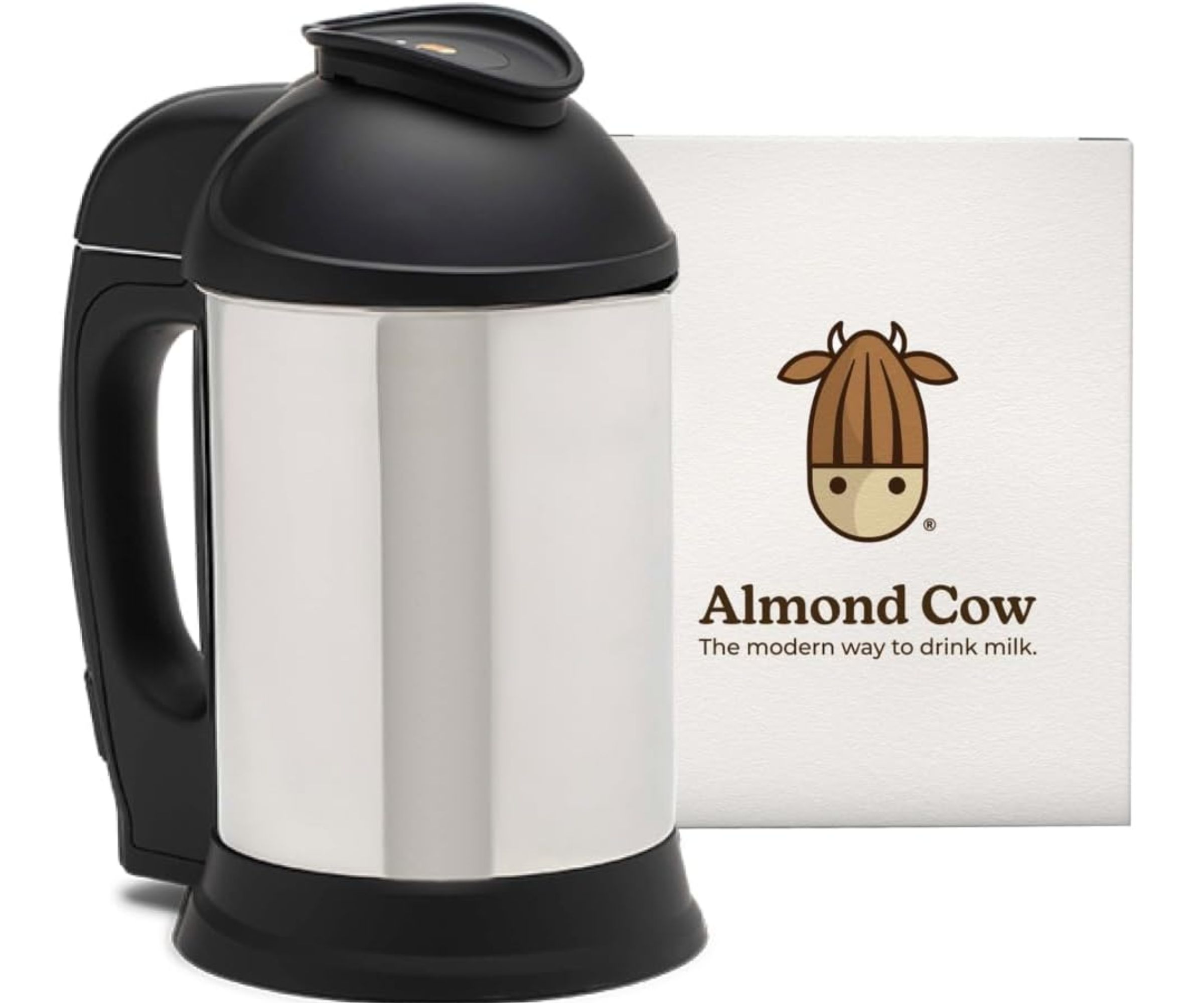
| Dimensions | 12 x 9.5 x 6.5 inches |
| Weight | 4.6 lbs |
| Capacity | 6 cups |
| Material | Stainless steel |
| Power | 120 V |
| RRP | $245 |
Who would it suit?
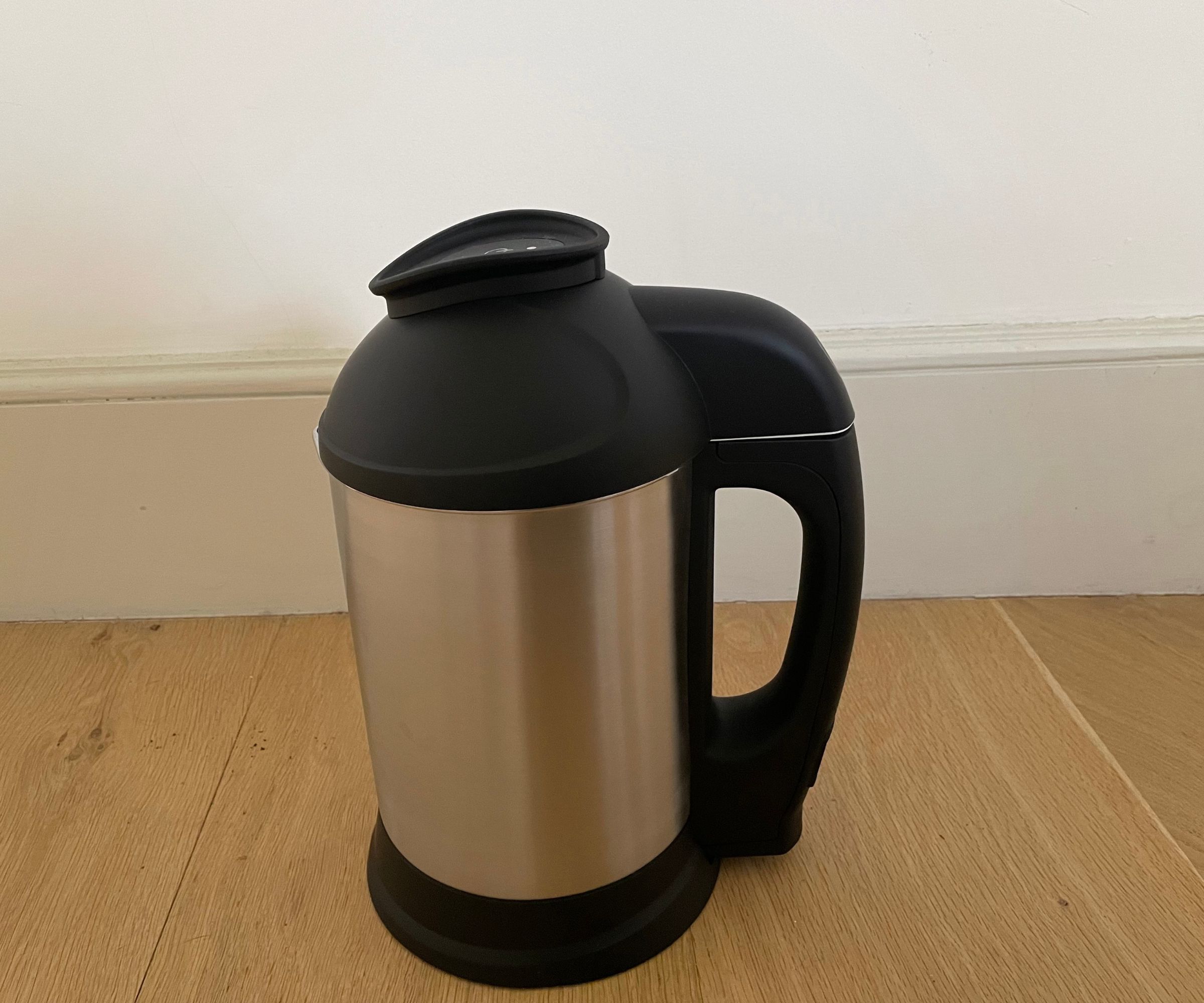
This nut milk maker is demands a lot of space. It's bigger than an electric kettle, but probably smaller than your coffee maker. For that reason, it’s better suited to big kitchens or places with spacious cupboards.
I wouldn’t blame you if you wanted to keep this in a cupboard (check your space availability), because, whilst it feels premium and is low maintenance, it has a very industrial look, which might not suit all homes.
The process is well-suited to those who are busy. The sharp blades mean that you don’t need to soak or soften nuts in advance, even if you want to make really creamy milk. It’s quick (takes less than a minute to make milk) and boasts a big capacity (six cups), easily serving large families. The Almond Cow can also make coffee creamer, which people are always asking me about. Plant-based creamers (like this one from Walmart) can be hard to find and are often packed with additives, so this would be a great addition to any coffee enthusiast’s coffee nook.
Design expertise in your inbox – from inspiring decorating ideas and beautiful celebrity homes to practical gardening advice and shopping round-ups.
Unboxing
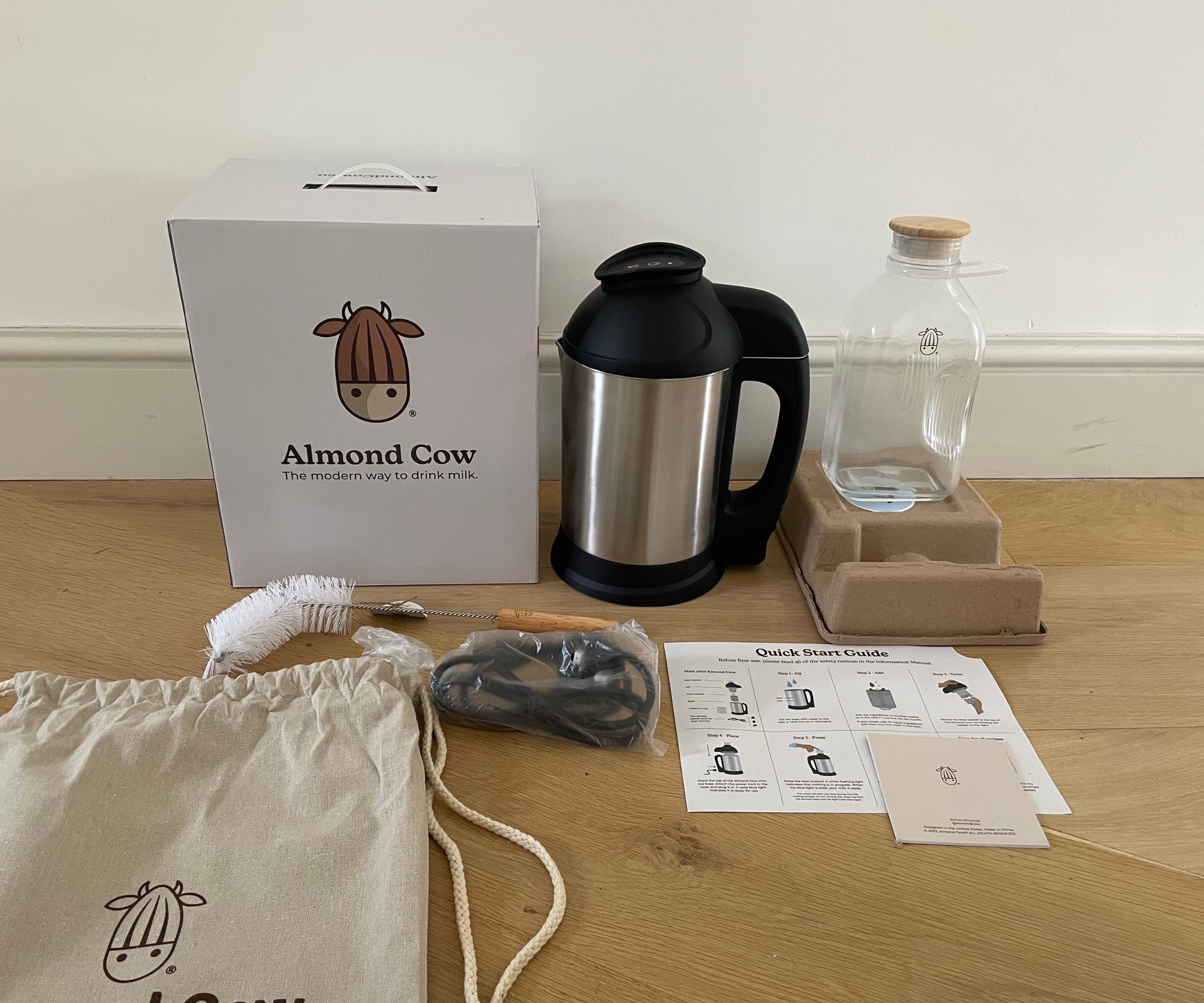
It was no surprise that the Almond Cow came with all sustainable packaging. The box is completely recyclable and has lovely illustrations and text on the inside. It makes unboxing, normally quite a mundane process, feel like a treat.
The main nut milk maker looks like a big, stainless steel, coffee carafe. It’s surprisingly light, but will demand a lot of countertop real estate. The rest of the parts are all self-explanatory: there’s a basket and blades (where you put your nuts or grains), a place to sit the blade once you’ve used it, a huge glass milk carafe (perfect for fridge doors), a neat cleaning wand, and a branded bag.
What is it like to use?
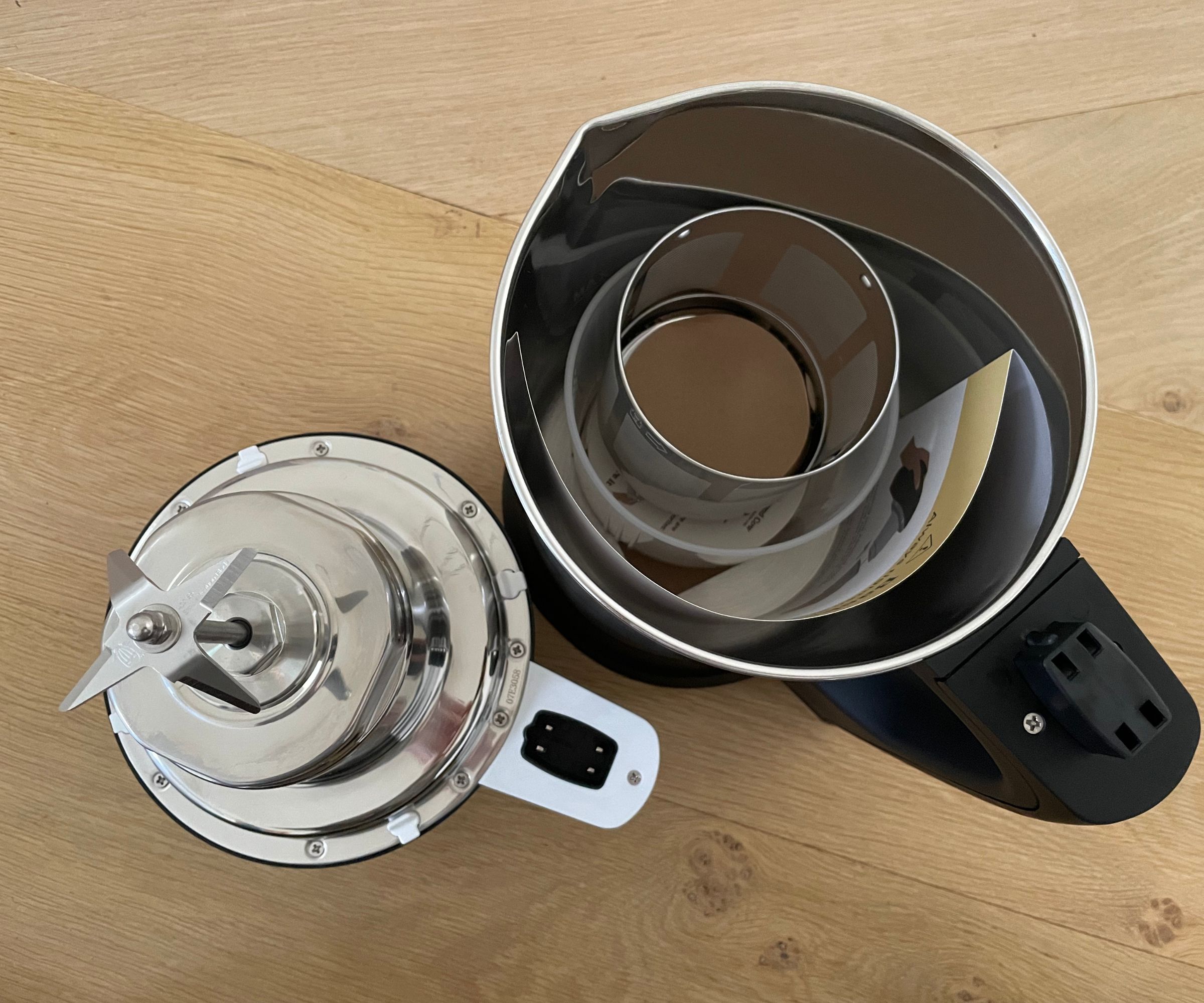
Plenty of nut milk makers can be intimidating to use, but Almond Cow makes the process as easy as possible. I rinsed the carafe, filled it to the max line (which you might need reading glasses to see) with filtered water and could get started. It really is that simple.
Test 1: almond milk
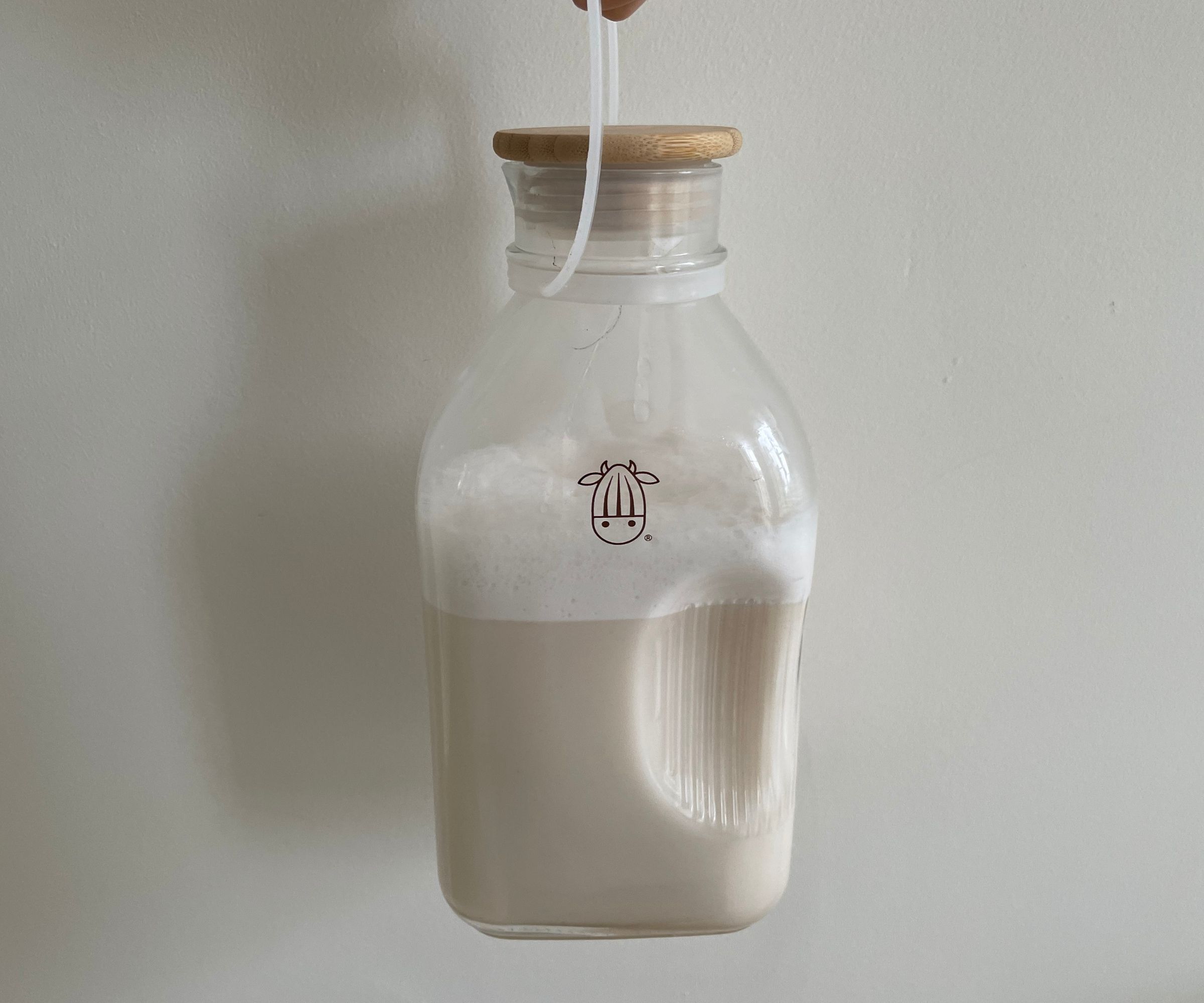
I filled the filter basket with one cup of almonds. You can buy special almond and date mixes from Almond Cow, but I wanted to test with groceries like I would buy from the store. I put the blades into the basket and twisted it to lock it. This didn’t take as much strength as I thought it might, which is always a welcome surprise.
Once the almonds were submerged in the water, I shut the lid and pushed a button. The machine starts off at 76 dBA, which is quite loud, but within in ten seconds, it gets a lot quieter. In just over a minute, the white light on top of my carafe turned blue, indicating the almond milk is ready. There’s no audible indicator, so make sure to watch your carafe.
You need to unplug the jug from its wire to lift it up. The wire is long, but I don’t like the idea of getting tangled up. I needed to open the lid to be able to pour almond milk out, but there’s a useful spout shape in the top, which makes for mess-free pouring.
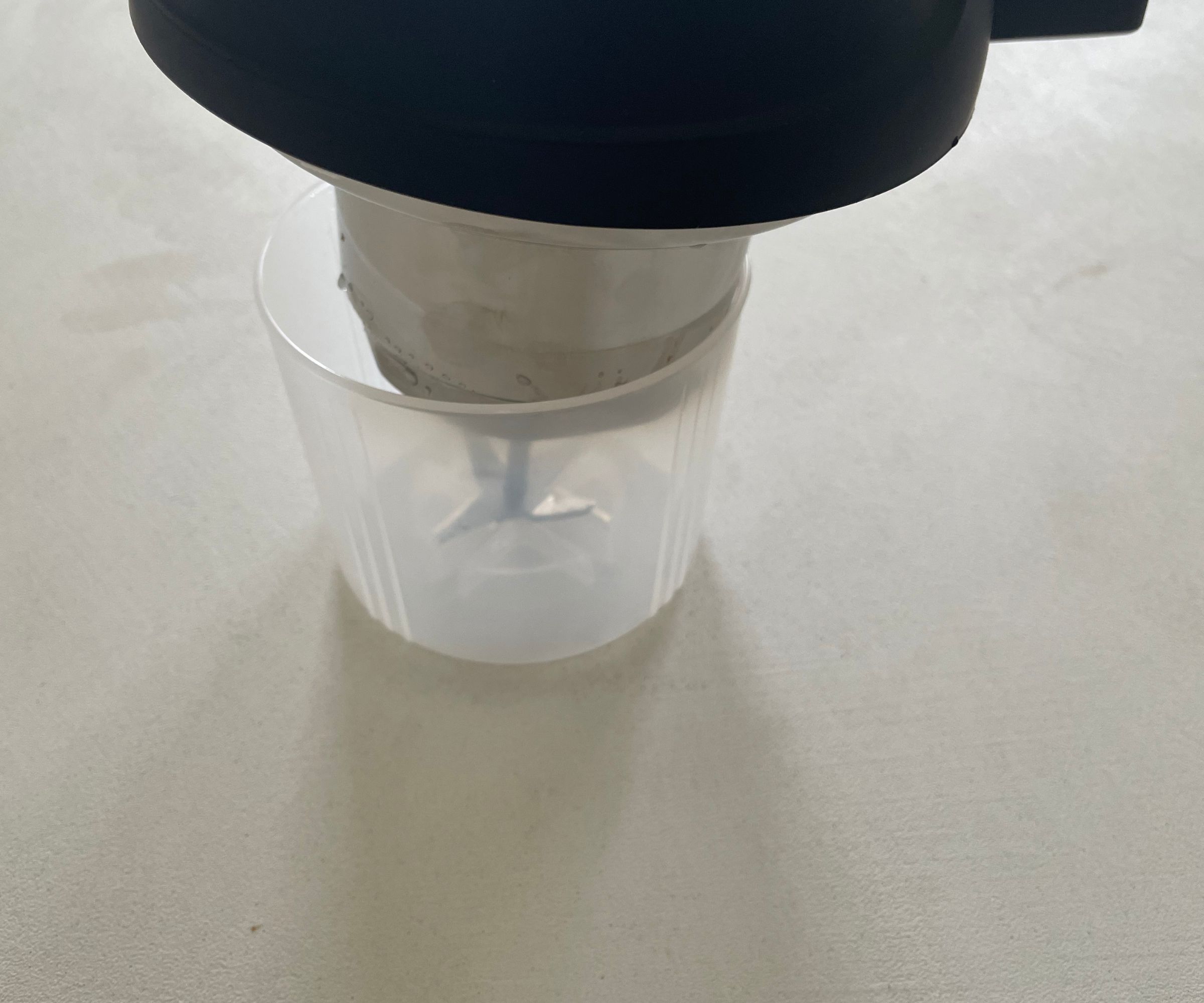
Almond Cow give a useful filter bowl (see image above) to put the blades and filter in — these drip a lot. It helps to minimize mess, but definitely doesn’t eliminate it.
I poured the almond milk into my Almond Cow carafe and the yield was fantastic. It had a nice white stone color, which looked natural (rather than bleached) and still very appetising. It tasted like authentic almond milk; it’s a little grainier than a store bought carton, but it’s creamy (not watery) and has that distinct, authentic almond flavor. The fact that it only took a cup of almonds to achieve this is awesome.
Test 2: oat milk
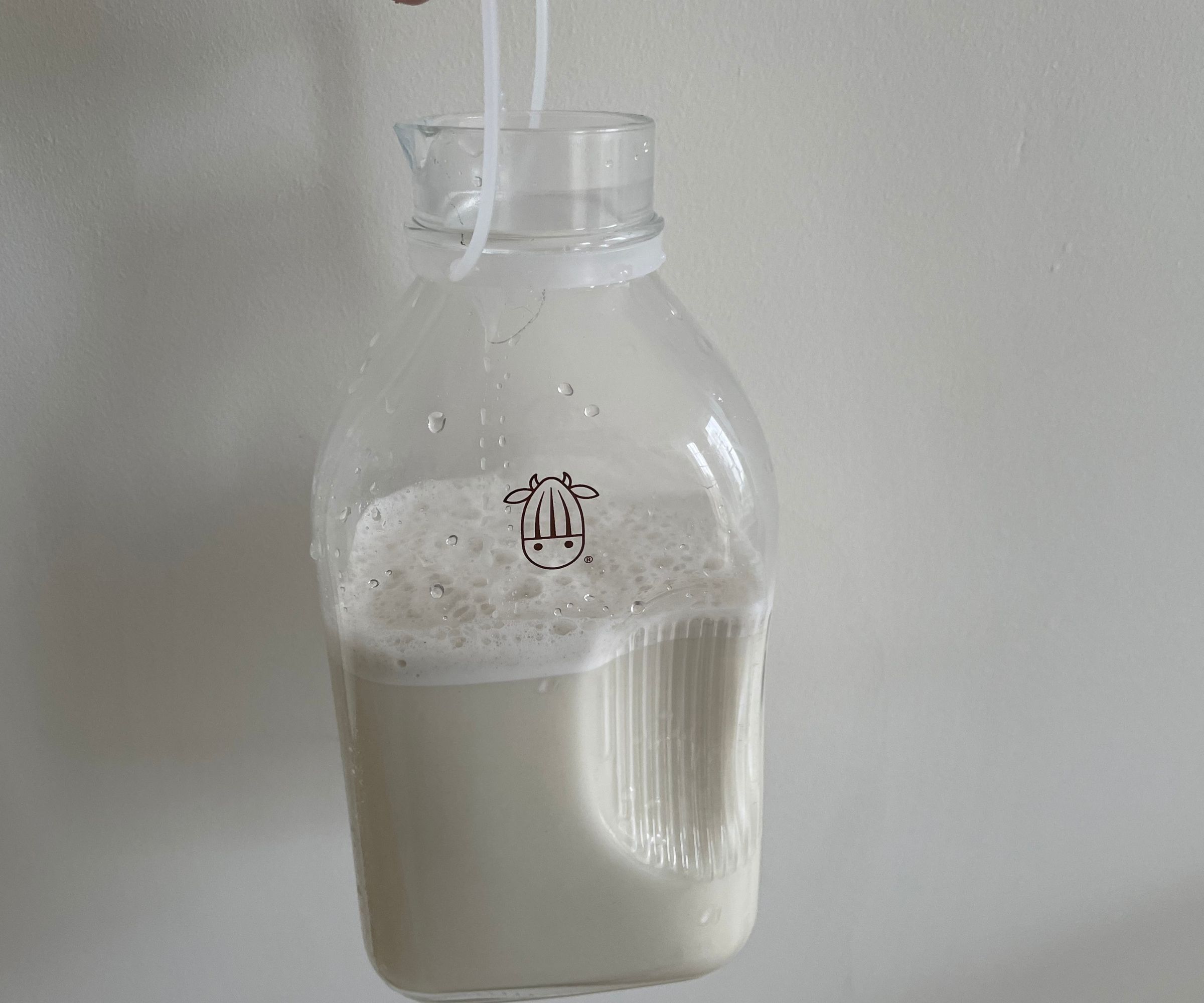
Oats are, unsurprisingly, very dry, so I was surprised that Almond Cow didn’t recommend soaking oats beforehand. I wanted to test this as close to their instructions as possible, so replicated the same process as the almond milk: I filled the jug with filtered water, put one cup of oats in the filter basket, inserted the blades, shut the top of the pitcher, and pushed the button.
From here, everything was similar. The noise was much quieter, and again, one minute and two seconds later, it was finished. I make at least a liter of oat milk every week for protein shakes, so I’m really familiar with home-made oat milk. It’s much more savory than normal milk and separates easily, which is exactly how this turned out. The most notable thing was just how creamy this oat milk was. It tasted rich and not watery at all, even though my ratio of oats to water was similar to all other nut milk makers. I put in my notes ‘this is the best oat milk I’ve ever made’, not only because it was flavorful and an appetising color, but because there was no oaty residue at the bottom.
The filter basket residue was sloppy and probably the messiest of all the ingredients we tested, but the clean up is worth the taste.
Test 3: coconut milk
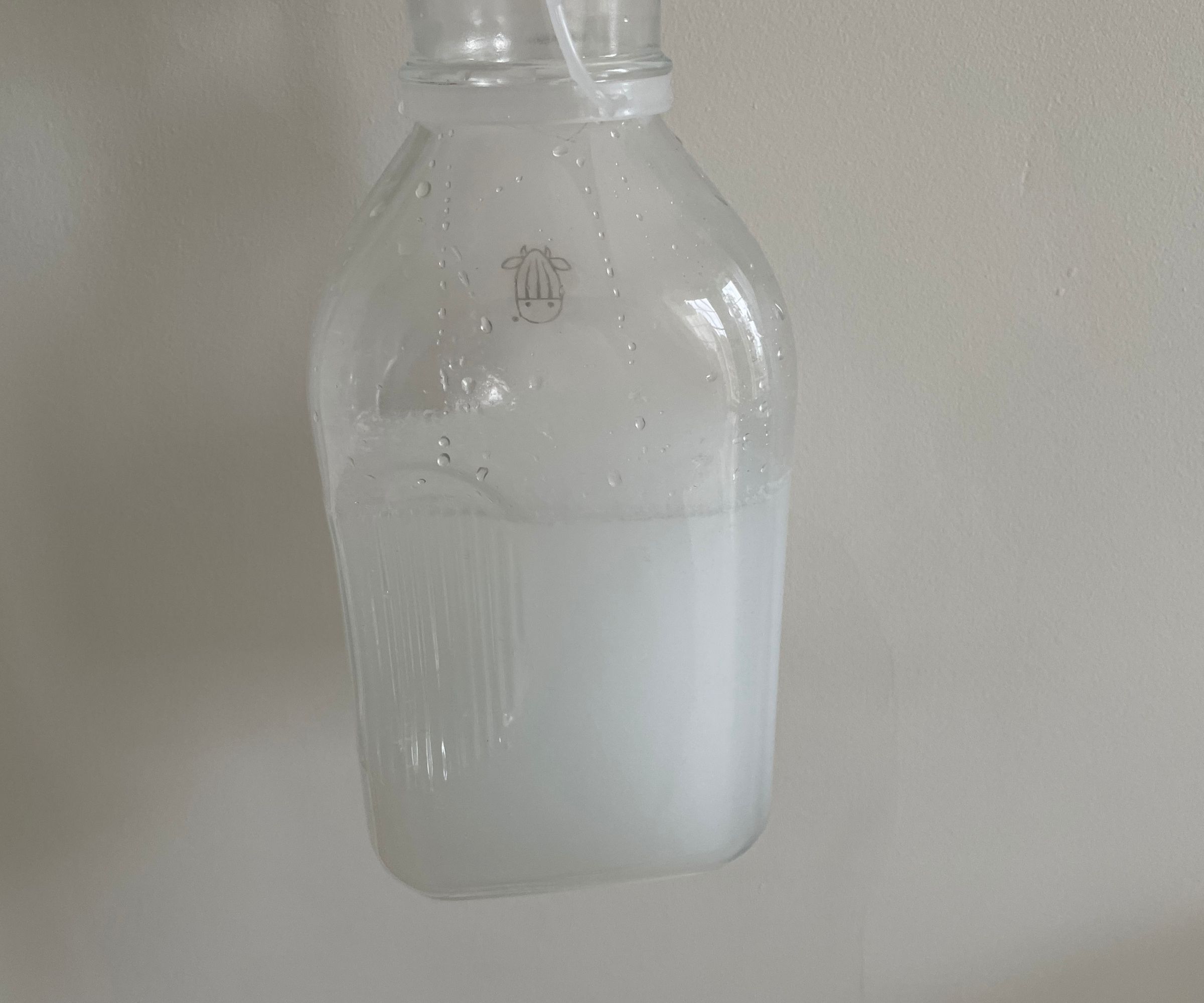
This is the one instance in which I would be tempted to deviate from Almond Cow’s recipe, or to buy their Coconut and Cashew sachets rather than try to make my own coconut milk. I followed the one cup ratio of desiccated coconut, packing it into the filter basket. Everything seemed to be going well, but my results looked awful. The ‘coconut milk’ looked more like water which had been run past some coconut and nothing else. Unfortunately, it tasted like that, too. It was more like water that had seen a coconut rather than had been mixed with one.
With that in mind, I set to work soaking coconut with some dates and cashews. The next day, I put a cup of this mix into the basket, set everything running and made a delicious, creamy, coconut drink. The cashews certainly helped but didn’t overwhelm my tropical coconut flavors. It’s a lot more hassle, but if you drink coconut milk, this is the only way to experience success.
Cleaning, storage, and maintenance
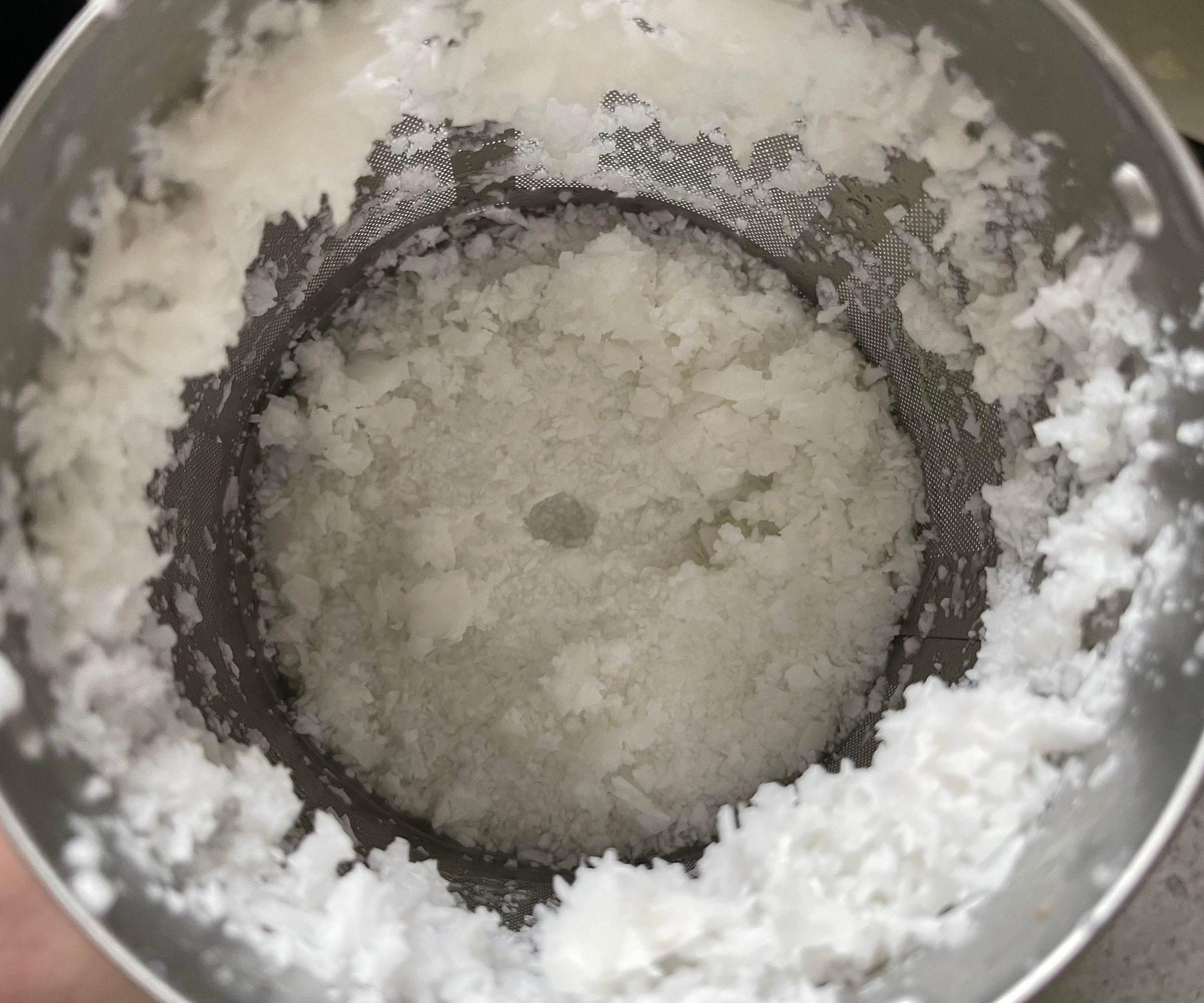
Considering how much mess the filter basket makes, this is surprisingly easy to wash up. Most of the mess is contained inside the cup where you can sit your blades between uses.
The filter and blades are dishwasher safe, but the filter basket is quite delicate, so I would recommend hand washing. The blades are also really sharp, so be careful.
In spite of the brushed stainless steel finish, which can be very high maintenance, this didn’t mark at all. The exterior stayed really clean. Even the carafe was easy to clean to a sparkle thanks to the neatly shaped cleaning brush.
As I mentioned earlier, this is pretty huge. However, you can make big batches of plant-based milks in it, so you shouldn’t need to keep it on your countertop as one of those appliances that you reach for regularly. I’d recommend finding a tall, deep cupboard and keeping this in there.
How does it rate online?
As an Instagram sensation, everyone has an opinion on the Almond Cow. Thankfully, most of those opinions are positive. I found lots of ‘the best ever’ in customer reviews, which neatly mirrors my experience. The most popular milk people made in here was the almond milk, which is no surprise given the name.
It was hard to find criticisms beyond the obvious size of the Almond Cow. People who tried Almond Cow’s sachets of nut milk mixes said that they were incredible. I tried them and they did make much better milk, but I think that’s because they put sweet dates and vanilla in them. I replicated these in my home recipes and it’s possible to get the same delicious flavors, but adds to the prep work.
How does it compare?
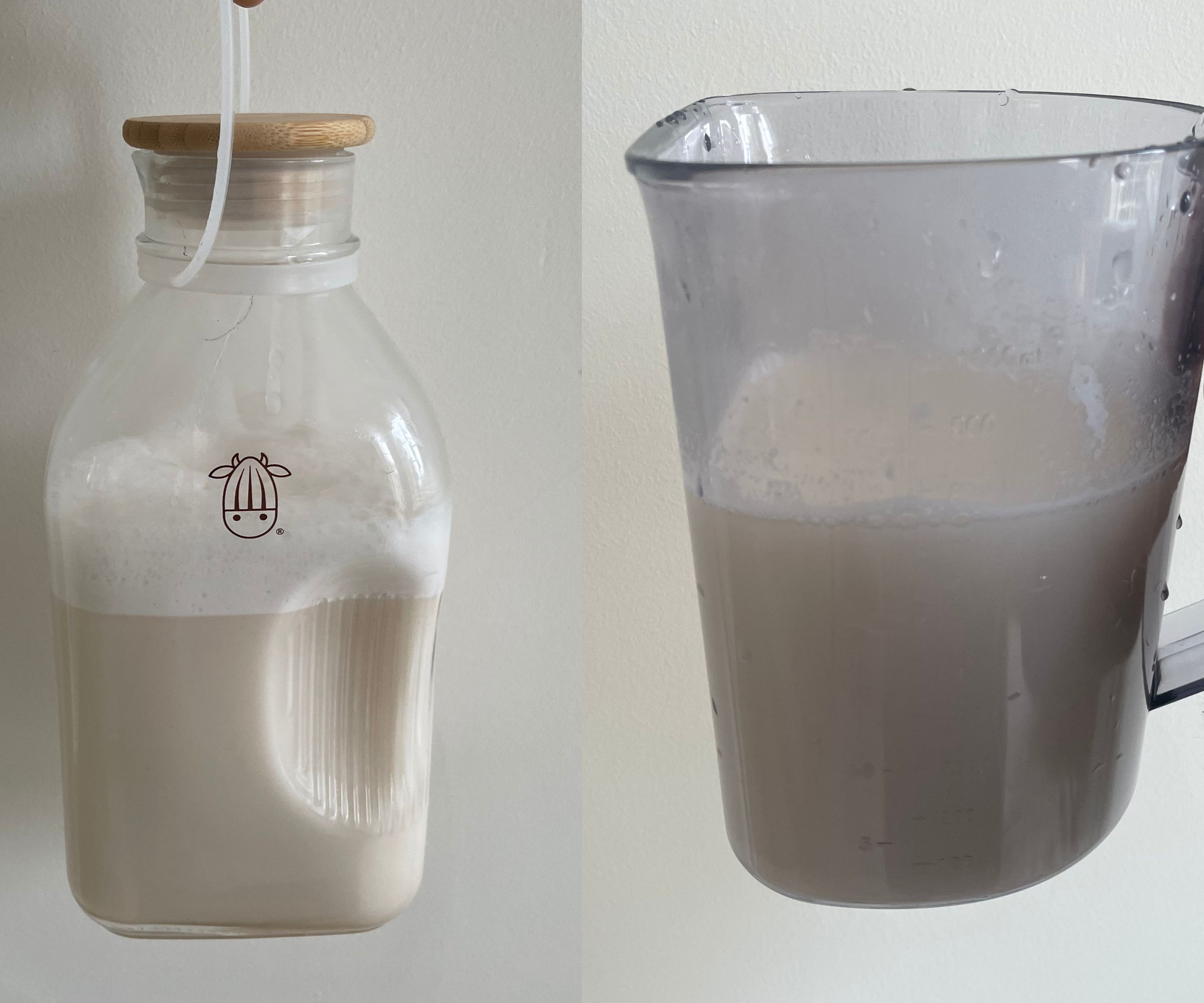
The left hand side shows almond milk made with the Almond Cow and the right hand side shows almond milk made with Nama
I’ve used the Nama J2 for a long time to make nut milks, because I think it’s one of the best juicers on the market (it’s probably the thing I’d grab out my house if there was a fire). It seems only fair to compare the two, because the Almond Cow put in a performance good enough to threaten Nama.
In terms of prep work, Almond Cow is much less time consuming. You don’t need to soak almonds overnight: they can go straight in. The Nama suggests soaking almonds overnight, which I don’t do and I still get good results, but it’s not what they recommend. It’s also much easier to wash up after the Almond Cow (there are fewer, less complicated parts) although it creates more mess in the process.
In the countertop, the Nama cuts a much more refined silhouette. It looks elegant and premium to the Almond Cow’s somewhat functional farmhouse style. However, the Nama is too tall to do anything except sit on your countertop, whereas the Almond Cow offers more storage options.
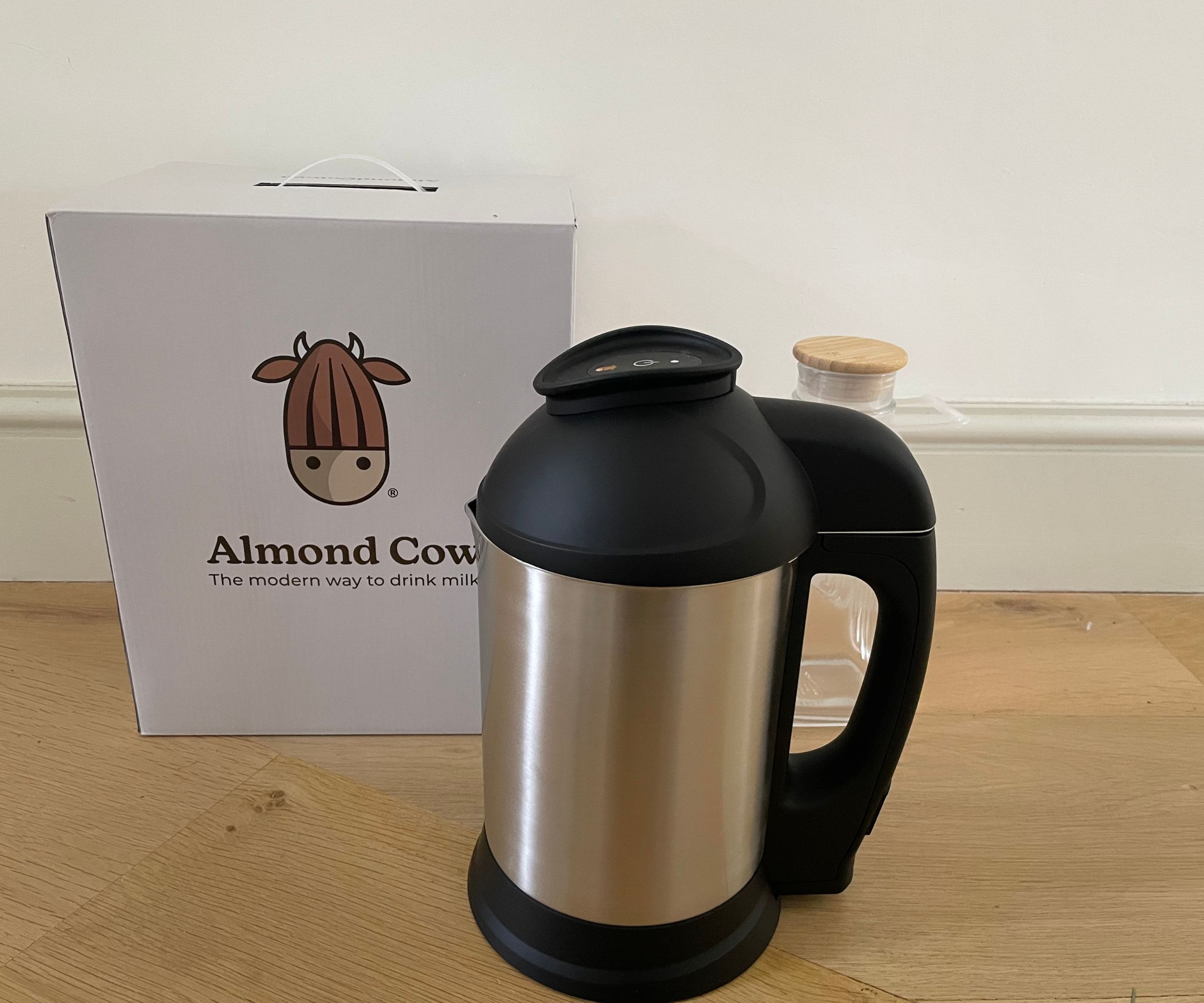
Flavor wise, there’s little difference between the Nama and Almond Cow’s almond milk. They’re both smooth, creamy, and produce similar yields. The waste from the Nama is more usable: you could bake it or use it as a breakfast topper. Almond Cow has some recipe recommendations for what to do with waste, but it’s quite sloppy.
I thought the Almond Cow’s oat milk was better though. Both are good, but the Almond Cow didn’t call for any soaking in advance and left no oat residue in the bottom. Because the oats are dry, they have a lower yield than the Nama, but are nevertheless good.
As for coconut milk, I’m afraid the Nama is in a different yield. The Nama is a juicer, so it can make coconut milk and coconut milk from fresh coconut (once you try it you’ll never go back) as well as with pre-soaked coconut flakes.
In summary, the Nama is great if you want the functions of a juicer: it’s expensive, extremely capable, and super stylish. The Almond Cow is the winner if you put convenience first and want quick, close to perfect oat milk.
Should you buy it?
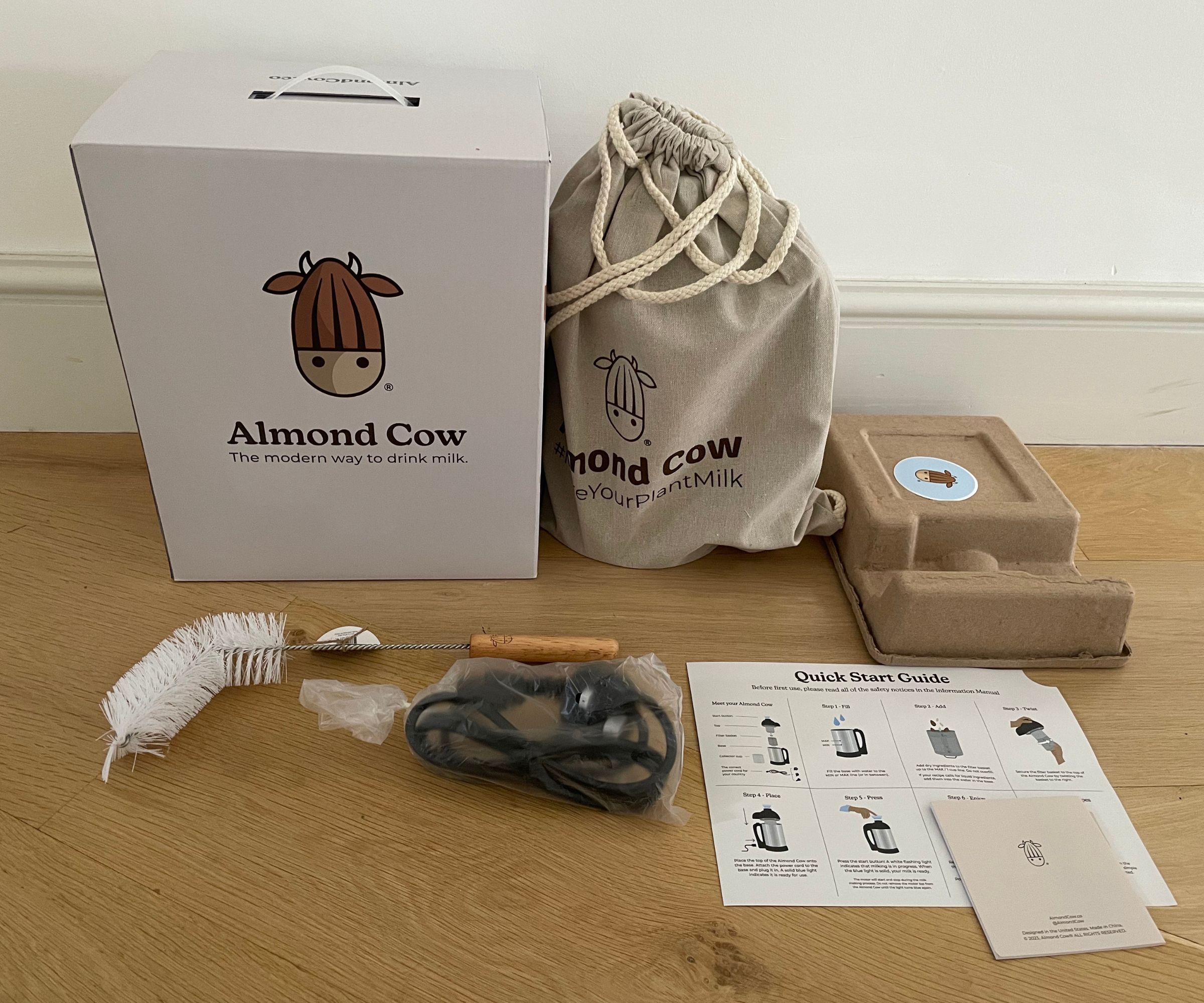
I love the Almond Cow and have already recommended it to a number of friends. It’s incredibly convenient, and I particularly love the design and all the cute accessories (especially the carafe). It feels like a real treat to use.
How we test
At Homes & Gardens we like to have in-person experience with every product we test. That’s why, whenever you read a review from us, it’s been written by our team of experts who have used this very appliance for at least a day in our test kitchen.
Before we start anything, we make sure to research a product, checking what it claims to be able to do, so we know about any special features that we might need to test. Once we are in-person with a product, we go through a series of standardized tests to see how well a nut milk maker can make oat, almond, and coconut milk. We also check how it looks on the countertop, what it’s like to clean, and any other factors you might want to know before buying. We take our tests really seriously, so if you want to know more, you can read our dedicated page for how we test nut milk makers.

Laura is our eCommerce editor. As a fully qualified barista, she's our expert in all things coffee and has tested over thirty of the best coffee makers on the market. She has also interviewed Q-Graders and world-leading experts in the coffee industry, so has an intimate knowledge of all things coffee. Before joining Homes & Gardens, she studied English at Oxford University. Whilst studying, she trained as a master perfumer and worked in the luxury fragrance industry for five years. Her collection of home fragrance is extensive and she's met and interviewed five of the world's finest perfumers (also known as 'noses'). As a result of this expansive fragrance knowledge, she always puts quality and style over quantity and fads. Laura looks for products which have been designed simply and with thoughtful finishes.